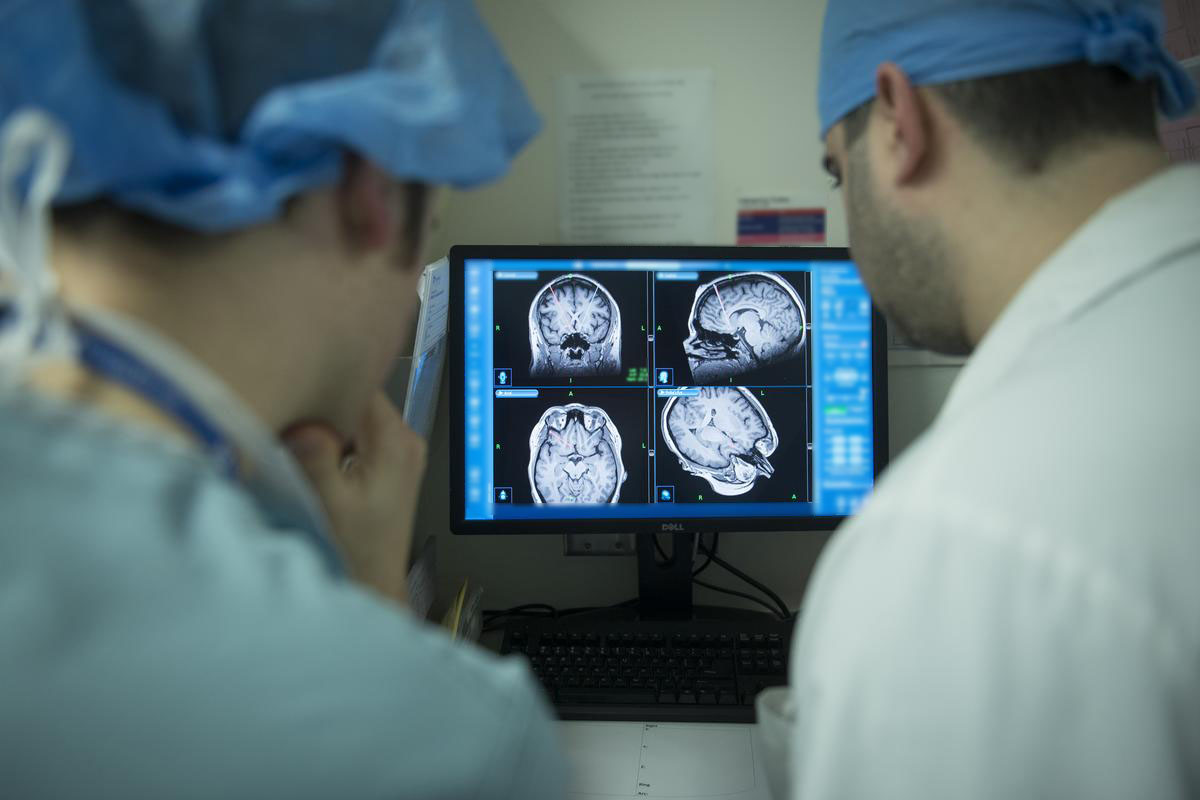Brain surgery found to be effective in treating alcohol use disorder

Researchers at Sunnybrook Health Sciences Centre have now provided early evidence that deep brain stimulation (DBS), a type of brain surgery, is a safe and effective treatment for severe and treatment-resistant alcohol use disorder (AUD).
Results from this pilot phase I trial, suggest that DBS can lead to significant reductions of daily alcohol intake among participants. All patients experienced a significant reduction in their cravings for alcohol and some patients were able to dramatically curb their alcohol consumption.
This is the first study in North America to investigate DBS for treatment-resistant AUD in which patients have not responded to conventional treatments such as psychotherapy and medication.
Results of the ground-breaking pilot study have been published in Molecular Psychiatry.
Currently, Sunnybrook’s Harquail Centre for Neuromodulation is among the few centres globally performing DBS for AUD.
“Deep brain stimulation targets pathways in the brain specifically associated with addiction and reward,” says Dr. Nir Lipsman, the study’s principal investigator, neurosurgeon, and director of Sunnybrook’s Harquail Centre for Neuromodulation. “Our preliminary findings demonstrate that this direct-to-brain intervention was safe and well-tolerated by patients. While far from a cure for alcohol use disorder, the results are promising and suggest that DBS could be a novel approach to curbing alcohol cravings.”
AUD is a medical condition that occurs when an individual is unable to control how much alcohol they consume. AUD can lead to debilitating health problems and difficulty functioning in daily life. Study researchers say AUD affects more than 10 percent of the general population. Conventional treatments include detoxification, psychotherapy, medication, and abstinence. Experts say the rate of relapse is 75 percent.
DBS is a pacemaker for the brain. It is a neurosurgical procedure that involves implanting electrodes in highly specific regions to stimulate brain circuits responsible for abnormal symptoms. In Canada and around the world, DBS is commonly used in the treatment of Parkinson’s disease, essential tremor, and obsessive-compulsive disorder.
In this study, researchers targeted the nucleus accumbens, a part of the brain’s reward circuitry that is critical in addiction, managing alcohol cravings, as well as mood and anxiety.
The pilot study included a total of six participants (two females and four males) living with severe chronic AUD of six to more than 25 years of heavy drinking. Individual consumption varied from six to 18 alcoholic drinks per day. The average age was 49 years old.
Participants enrolled and underwent DBS surgery between December 2018 and October 2020. Stimulation of the targeted brain pathway and follow up with patients continued over a 12-month period.
“An important study finding was the meaningful change in the experience of consuming alcohol. Namely, a reduction in the euphoric ‘high’ that is associated with alcohol,” explains Dr. Benjamin Davidson, first author of the study and surgical resident at Sunnybrook. “After one year, all of the study participants experienced a significant reduction in cravings, and alcohol-related compulsivity and anxiety.”
The marked decrease in alcohol consumption varied among participants with some experiencing a 50 to 100 percent drop in drinks per day.
“These are significant and promising early findings that point to the opportunity for an innovative new way of treating alcohol use disorder,” says Dr. Davidson. “Our analysis suggests that deep brain simulation impacts how the related brain pathways work together and reduces an individual’s typical response to visual alcohol cues which can help curb cravings for alcohol, however, more research will be needed.”
“Next steps will include investigating how next generation DBS technology can be used to fine tune and tailor more personalized treatments for patients in the future,” says Dr. Lipsman. “This is an exciting time of discovery as we expand our scope and gain global experience in direct-to-brain interventions for psychiatric diseases.”
Generous philanthropic investment in Sunnybrook’s Harquail Centre for Neuromodulation, including lead support from the Harquail Family, is a catalyst for advancing this study and other groundbreaking neuromodulation work at Sunnybrook.
For more information about deep brain stimulation at Sunnybrook: sunnybrook.ca/dbs
Learn more about the Harquail Centre for Neuromodulation at Sunnybrook
Media contacts:
Jennifer Palisoc
Communications Advisor
Sunnybrook Health Sciences Centre
jennifer.palisoc@sunnybrook.ca
Samantha Sexton
Communications Advisor
Sunnybrook Health Sciences Centre
samantha.sexton@sunnybrook.ca






